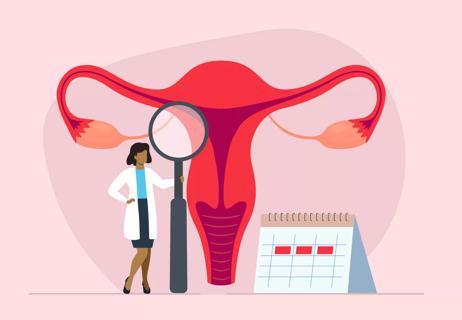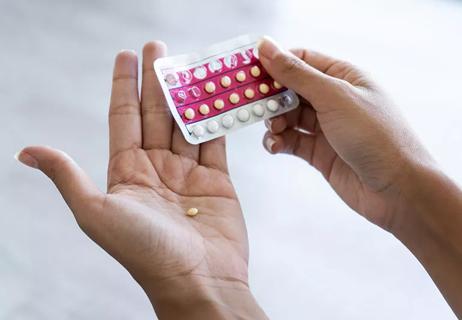Some changes in your period can be worrisome, and some not

Our bodies are a lot different at age 50 than they are at 17. Our hair changes color, our skin looks different, our metabolism slows down — and our periods change, too.
Advertisement
Cleveland Clinic is a non-profit academic medical center. Advertising on our site helps support our mission. We do not endorse non-Cleveland Clinic products or services. Policy
The release of blood and tissue from inside the uterus is dictated by hormones. The levels of those hormones in our bodies change during different phases of our lives, so it’s natural that the monthly bleeding we experience would change, too.
While there’s no such thing as a “normal period” — every woman’s menstrual cycle is unique and can fluctuate throughout her lifetime — there are some generally accepted characteristics of a healthy period, says Ob/Gyn Karmon James, MD.
Dr. James says a healthy period usually looks like this:
If changes occur to your period outside of the aforementioned parameters without an obvious explanation, Dr. James suggests mentioning it to your doctor. You should also tell your doctor about any bleeding that occurs in-between periods.
“These deviations could potentially indicate problems with the thyroid, or a number of other medical problems. But most often, they have a benign explanation,” Dr. James says.
Advertisement
Here are some of the note-worthy ways you can expect your period to change throughout your life.
The average age at which a girl starts her period is 12, but some girls may not get theirs until their mid-teens.
“It’s normal for girls to have irregular periods during puberty — in fact, it can take up to three years for a girl’s period to become regular as hormones balance out,” Dr. James notes.
Going on or off birth control or switching birth control methods can cause changes in your flow or the length of your period. That’s not a problem.
A missed period during your 20s or any other decade could be a sign of pregnancy, though. It could also be caused by extreme stress. “I have seen college students miss their period in December during finals,” Dr. James says.
In some cases, a missed period could be caused by something worrisome like consistent overexercising or an eating disorder such as anorexia. It’s best to mention any missed periods to your doctor.
Regardless of age, if you’ve had a baby, your period might be different after pregnancy. Some women experience heavier, longer or more painful periods after a baby, while others see their periods improve. Many women also don’t have periods while breastfeeding.
As you approach your late 30s, your periods may become less frequent or less regular. That’s perimenopause — the beginning of your body’s transition to menopause.
You may be wondering, “Why is my menstrual cycle getting shorter?” and at what age do periods stop? During your 40s, your ovaries slow their estrogen production, so your periods may get shorter and lighter, or come less frequently. Menopause occurs when your period stops completely for 12 consecutive months. For most women, this happens in their late 40s or early 50s.
Any woman with postmenopausal bleeding should tell her doctor, who may want to evaluate her for endometrial cancer, a type of uterine cancer. This is a rare cancer that develops in the inner lining or muscle wall of the uterus, but it mostly occurs in women age 50 or older.
Tracking your menstrual cycle can help you determine what “normal” looks like for you and bring your attention to anything that might be out of whack.
“My biggest advice for women is to seek a provider you trust and tell them when something changes.” Dr. James says. “Don’t assume everything is normal because abnormal bleeding could be related to a number of things.”
Advertisement
Learn more about our editorial process.
Advertisement

Reasons for spotting can include menopause, uterine fibroids, PCOS and birth control

Hormonal changes are the likely culprits behind the aches and fatigue before your period

Typically, you can keep your appointment, let your gynecologist know and let your worries go

Stress, extreme diet and exercise, PCOS and, of course, pregnancy could be responsible

If your period hasn’t come for three months, it’s best to see a doctor

Eating and exercising according to your cycle can reduce PMS and period symptoms

Keeping a steady level of hormones is key in preventing a period

The absorbent and reusable product may be a game changer for your menstrual cycle

Type 2 diabetes isn’t inevitable with these dietary changes

Applying a hot or cold compress can help with pain